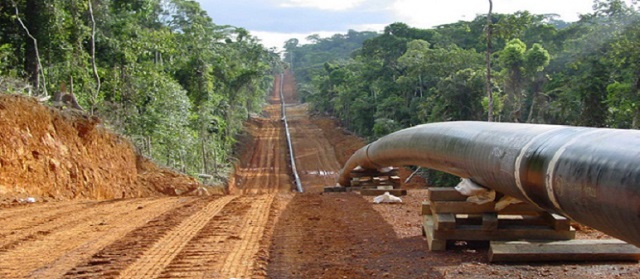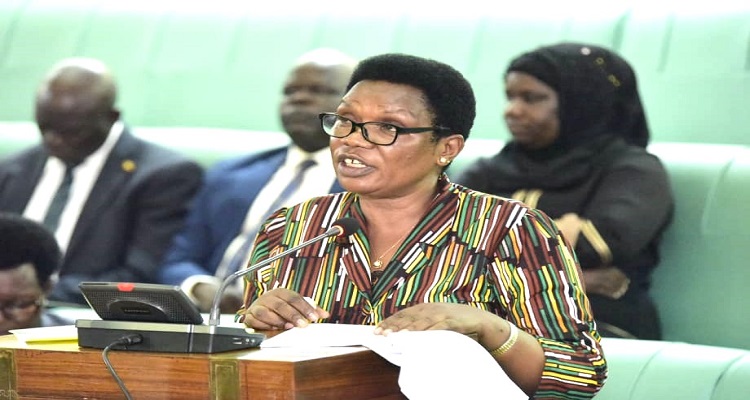In a legal narrative that unfolded within the hallowed halls of the East African Court of Justice (EACJ), a tempestuous saga has been set into motion, casting the colossal East African Crude Oil Pipeline (EACOP) into the center of a legal maelstrom.
The prologue to this epic began in November 2023, when the regional court in Arusha resounded with the weighty pronouncement that struck down a case brought forth by activist groups, including the African Centre for Energy Governance (AFIEGO).
The verdict, akin to a seismic shock, deemed the case untimely, ushering it into the crypts of legal obscurity.
Undeterred by this judicial thunderclap, AFIEGO, accompanied by the Center for Food and Adequate Living Rights (CEFROHT)-Uganda, the Natural Justice (NJ)-Kenya, and the relentless Centre for Strategic Litigation (CSL)-Tanzania, embarked on a legal resurrection. In November 2020, they filed an appeal, breathing life back into the battle against EACOP.
Tuesday marked a turning point as the Appellate Division of the EACJ orchestrated the next act in this legal drama. Like a maestro summoning performers to a grand stage, the court demanded written submissions from the activist cohorts, setting the stage for a legal spectacle unparalleled in depth and complexity.
The gladiators of justice were given until March 22, 2024, to craft their arguments, each submission poised to be a meticulously woven legal tapestry.
The heavyweight adversaries, comprising the governments of Uganda and Tanzania, along with the Secretary General of the East African Community (EAC), were not spared from the unfolding legal symphony.
April 22, 2024, was decreed as the deadline for their counterarguments, promising a legal clash of titans that would resonate through the annals of environmental jurisprudence.
AFIEGO and its allies, armed with an intricate legal arsenal, contended that EACOP trampled upon a pantheon of East African and international treaties. The court became a canvas upon which the activists painted a legal masterpiece, invoking the East African Community (EAC) Treaty, the Protocol for Sustainable Development of the Lake Victoria basin, and an extensive array of accords, including the Convention on Biological Diversity and the United Nations Framework Convention on Climate Change.
The courtroom battlefield expanded as the court, acting as a vigilant referee, mandated rejoinders to the counterarguments from the governments. May 6, 2024, was etched into the legal calendar as the deadline, promising a nuanced exchange that would shape the narrative of the EACOP legal odyssey.
In an exclusive interview that resonated with triumph, Dickens Kamugisha, CEO of AFIEGO, celebrated the court’s decision to pursue justice, emphasizing the imperative of shielding communities from projects such as the EACOP.
Simultaneously, Farida Aliwa, the Executive Director of Natural Justice, expressed anticipation, vowing to return to the court armed with meticulously detailed submissions. Her commitment echoed through the intricacies of environmental protection, as she pledged to safeguard East Africa’s delicate ecological equilibrium.
The EACOP, a colossus of a project spanning 1,443 kilometers, now stands at the epicenter of a legal tempest. Despite Uganda and Tanzania vehemently denying any environmental harm, the $5 billion behemoth faces the relentless pursuit of justice led by activists determined to secure a sustainable future for East Africa.
The background to this legal odyssey, initiated on November 6, 2020, unfolded as four civil society entities from Uganda, Kenya, and Tanzania embarked on a daring legal quest against the EACOP at the EACJ.
Armed with a comprehensive legal arsenal, the applicants, including the Centre for Food and Adequate Living Rights (CEFROHT)-Uganda, Africa Institute for Energy Governance (AFIEGO), Natural Justice from Kenya, and Centre for Strategic Litigation from Tanzania, contended that the project violates a litany of international treaties.
The courtroom, now transformed into an arena of legal gladiators, awaits the climactic clash that will determine the fate of the East African Crude Oil Pipeline, promising a legal narrative of unparalleled depth and complexity.
Do you have a story in your community or an opinion to share with us: Email us at Submit an Article









